Daphne du Maurier’s “Rebecca” is one of the most loved books in English Literature, and news of the forthcoming Netflix adaptation has been greeted with excitement and delight by fans.
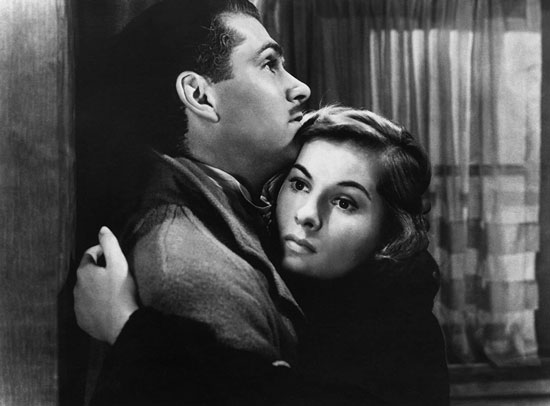
To help keep this site running: Willow and Thatch may receive a commission when you click on any of the links on our site and make a purchase after doing so.
Last year, the novel celebrated its 80th anniversary, and Du Maurier’s psychological exploration of the power balance between the sexes could not be more relevant in the present era.
Alfred Hitchcock’s 1940 adaptation, starring Joan Fontaine, Laurence Olivier, and Judith Anderson, won the Academy Award for Best Picture and it remains a classic interpretation of the novel.
It’s hard to follow a classic. Beyond a strong cast and stellar production values, how can Netflix make a memorable “Rebecca”?
Below, Du Maurier expert Dr Laura Varnam tells us the 5 critical elements she will be looking out for in this new adaptation of “Rebecca” for the twenty-first century, premiering on Netflix October 21, 2020.
*If you aren’t familiar with the story, you may want to skip this article, which has numerous spoilers.
Manderley: The Novel’s Other Main Character
Generations of readers have been captivated by Rebecca’s famous opening line, ‘Last night I dreamt I went to Manderley again…’. And Manderley – the Cornish home of Maxim de Winter, brought to life so vividly by his first wife Rebecca – has a crucial role to play in any adaptation. The house was inspired by a real Cornish mansion, Menabilly, the ‘house of secrets’ that exerted such a fascination over du Maurier throughout her career and which she conjured up so tangibly when she began the novel in the sticky heat of Alexandria, Egypt, far away from her beloved Cornwall.
Manderley must entice and intrigue us but it must also overwhelm and overpower. For the shy, inexperienced Mrs de Winter, the English country house with its exquisite interior décor, full household staff, and extensive grounds should seem like another world. In Hitchcock’s adaptation, the oversized furniture and door-knobs at almost shoulder-height deliberately made Joan Fontaine’s Mrs de Winter seem small and insignificant. Fontaine creeps nervously down corridors, unsure of the location of the rooms, and yet she cannot help but find herself drawn to the west wing, the realm of the mysterious, glamorous Rebecca, whose shoes she cannot hope to fill.
Rebecca’s Presence
Rebecca herself is the endlessly enchanting enigma at the heart of the novel. Dead before the novel opens, she nevertheless haunts the narrator, the house, and us, and her presence must be palpable. Mrs Danvers, her devoted housekeeper and maid, whispers ‘I fancy I hear her just behind me. That quick, light footstep’ and it is crucial to any adaptation of the novel that a space is created for the Rebecca of our imaginations to come to life. In Hitchcock’s adaptation, Rebecca’s material presence was almost suffocating. Huge flower arrangements dominated every room, ornaments cluttered every surface, the stylish ‘R’ monogram stamped Rebecca’s mark on fabric and letters.
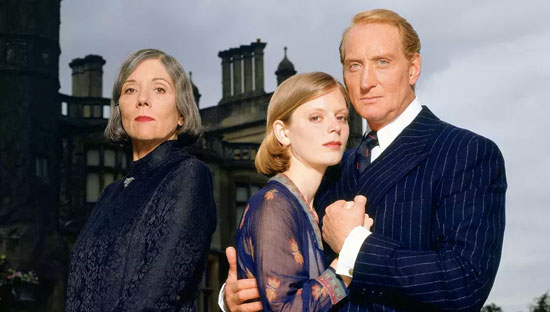
In a surprising move, the 1997 television adaptation, starring Emilia Fox and Charles Dance, cast an actress to play Rebecca (Lucy Cohu) and although we only see her in glimpses- her eyes and mouth, from afar and from behind- a far more powerful effect is created by her absence in Hitchcock’s version. In the boathouse scene when Maxim confesses what really happened to his first wife, the camera follows the absent Rebecca around the room and as Olivier delivers his chilling narrative of what happened that night we can almost, for a moment, see her for ourselves. So far, news of the cast for the Netflix adaptation suggests that Rebecca will also be left to our imaginations. But in her possessions and her relationships she will need to spark into life.
Mrs Danvers and Rebecca
One of the most important relationships in the novel, and one which fuels the novel’s key theme of jealousy, is that of Rebecca and Mrs Danvers. As the second Mrs de Winter finds out to her cost, Mrs Danvers was passionately devoted to her former mistress and she bitterly resents Maxim’s new wife attempting to take her place. The intensity of Mrs Danvers’ love for Rebecca was powerfully conveyed by Judith Anderson in Hitchcock’s adaptation. With her penetrating stare, hypnotic voice, and ability to suddenly appear and disappear in shot, Anderson has been seen as the quintessential ‘Danny’, caressing Rebecca’s delicate nightgown and enticing the second Mrs de Winter to fall under her spell and fall effortlessly from the bedroom window.
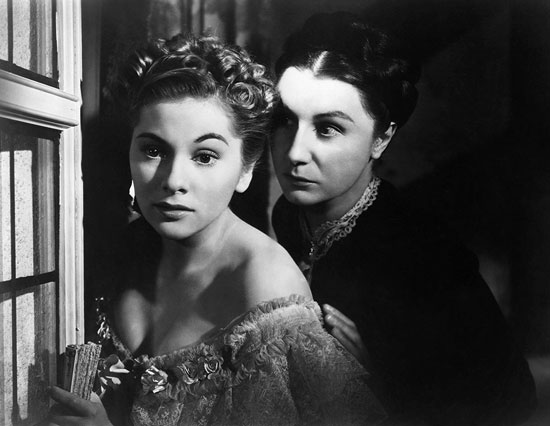
News that Kristin Scott Thomas has been cast as Mrs Danvers in the new adaptation has thrilled fans, myself included. Scott Thomas is a fan of Du Maurier’s work and the actress has the magnetism and gravitas to hold Mrs de Winter, and audiences, in her thrall. We can easily imagine her looming out of the shadows and asking with just the right amount of menace, ‘do you think the dead come back to watch the living?… I wonder if she comes back here to Manderley and watches you and Mr de Winter together.’ Her performance promises to be electric.
Mr and Mrs de Winter
With Armie Hammer and Lily James cast as the new Mr and Mrs de Winter, I will be keen to see how the power dynamic of the relationship plays out, especially given the reduction in age gap between the characters. In the novel, Mrs de Winter is in her early twenties and Maxim is in his early forties and reading the novel in the light of the #metoo movement, it is more apparent than ever that Maxim is a very dangerous man. Alongside the reader’s surprise at the revelation that Maxim in fact hated Rebecca, and Mrs de Winter’s subsequent relief that her husband isn’t in love with his first wife, to me there should be an uncomfortable awareness that being the second wife of such a man might not be as safe a position as it seems.
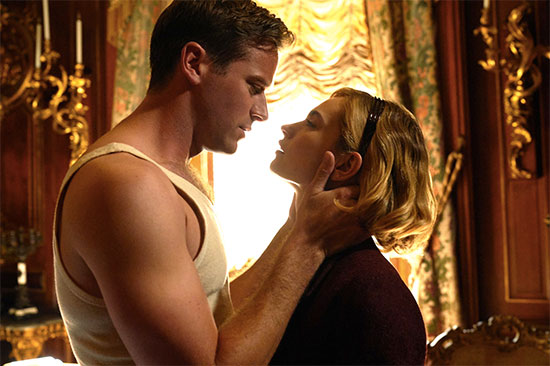
In Hitchcock’s adaptation, Olivier’s British stiff upper lip and standoffishness counteracted this sense of threat and due to the strictures of the Motion Picture Production Code, Maxim was only allowed to accidentally kill Rebecca by pushing her and causing her to hit her head on a piece of ship’s tackle (the hero couldn’t get away with murder in 1940s cinema!). The Netflix adaptation will be free to show Maxim’s true colours and the handling of the confession scene will be key both to the representation of his character and to whether our sympathies align with the second Mrs de Winter or with his murdered first wife.
Debates rage about Rebecca’s true character in the novel but as we only hear about her from other characters’, all of whom have a vested interest in their versions of her, we will never know whether she was the wronged wife, the vampiric femme fatale or something more complex in between. In both Rebecca and My Cousin Rachel Du Maurier is of course brilliant at exposing the damage that can be done by such narrow-minded and stereotypical views of women. But she is also adept at creating female characters who have a strength and grit that might not always be apparent at first sight.
In my own rereading of the novel, it strikes me that the second Mrs de Winter has far more power than she has been given credit for. She is, after all, the controlling voice of the narrative and after Maxim’s revelation, she steps up and is determined to protect her husband’s life and reputation. She even frees herself from Mrs Danvers’ malevolent influence, declaring ‘I am Mrs de Winter now’. In the new adaptation, Mrs de Winter will be played by Lily James who was recently cast as the clever and manipulative title character in All About Eve, in a change from her rather more innocent roles such as the lovely Lady Rose in Downton Abbey. There is potential here for James to bring a new strength to the depiction of Du Maurier’s narrator, who seems to be shy and vulnerable but who grows in confidence as a result of her experiences at Manderley.
The Manderley Fire
The dramatic conclusion of the story will be much-anticipated by audiences. In the novel, the opening dream sequence tells us that Manderley is a ‘sepulchre’, a ‘desolate shell’, but the ending of the novel is deliciously ambiguous. As Maxim and Mrs de Winter drive back to the house they see a ‘red streak’ across the sky and Maxim realises that it’s Manderley. The sky is ‘shot with crimson, like a splash of blood’ and the novel concludes, ‘and the ashes blew towards us with the salt wind from the sea.’ Who is responsible for the Manderley fire is one of the great mysteries of the novel. Suspicion often falls upon Mrs Danvers, whose sudden disappearance in the story makes Maxim uneasy, and in both the Hitchcock adaptation and the 1997 version, Mrs Danvers is clearly shown setting the house alight.
In a deliberate addition to the plot of the novel, Joan Fontaine’s Mrs de Winter declares that ‘Mrs Danvers has gone mad, she’d rather destroy Manderley than see us happy here’ and the camera then cuts to the crazed Mrs Danvers in Rebecca’s bedroom, surrounded by the flames as the ceiling then collapses upon her. Diana Rigg’s Danny also calmly sets fire to the house and then lies down on Rebecca’s bed, stroking her nightgown, before Charles Dance’s Mr de Winter heroically tries to rescue her, in an echo of Mr Rochester attempting to save Bertha in Jane Eyre. The 1979 Rebecca, starring Emilia Fox’s mother Joanna David as Mrs de Winter and Jeremy Brett as Maxim, follows the novel more faithfully. Mrs Danvers, played by Anna Massey, is said to have disappeared and when the de Winters return, Manderley is mysteriously on fire. It will be fascinating to see how the Netflix adaptation interprets Du Maurier’s characteristically ambiguous ending and what role, if any, Mrs Danvers has to play in the final destruction of Manderley.
Mrs de Winter in her narration laments that ‘we can never go back again, that much is certain’ but readers, and viewers, are always drawn irresistibly to return to Manderley, du Maurier’s evocative ‘house of secrets’. The Netflix adaptation is eagerly anticipated by fans and I for one cannot wait to follow that ‘quick, light footstep’ into the heart of Manderley and see if I can catch a glimpse of a Rebecca for the twenty-first century…
Watch the trailer and see more first look photos of “Rebecca” (2020) here. “Rebecca” premieres globally on Netflix October 21.
Dr Laura Varnam is a Lecturer in English Literature at University College, Oxford, and she is currently writing a book on Daphne du Maurier. You can read Dr Laura Varnam’s analysis of Hitchcock’s Rebecca on the Daphne du Maurier website and you can find out more about her work on her website.You can also find her @lauravarnam on Twitter.
If you enjoyed this post, you’ll want to wander over to The Period Films List. You’ll especially like the Best Period Dramas: Interwar Era List.

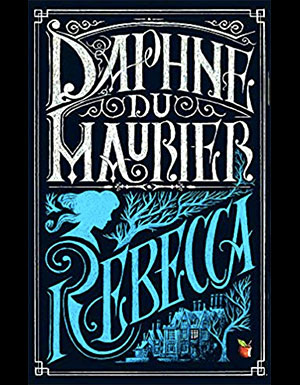
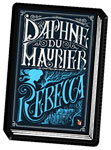

Lily
October 21, 2020 at 3:24 pm (5 years ago)The definitive version was filmed in 1979. The cast was perfect and it was far more faithful to the novel. As much as I respect Hitchcock, the casting was boring but for Dame Judith. I am dubious about any production which modernizes or changes a classic story.
Karen Henry
October 18, 2020 at 11:28 am (5 years ago)I’m not sure what will make this version “killer.” But I will say that I think Dame Kristin Scott Thomas will have the hardest job. Dame Judith Anderson was outstanding as Mrs. Danvers in the 1940 version!
Silvia
October 4, 2020 at 9:42 pm (5 years ago)The best Rebecca for me was the English version starred by Charles Dance, Emilia Fox and Diana Rigg. The best actors, screenplay, music and direction.
kay Coggin
October 4, 2020 at 10:03 am (5 years ago)I have always wondered why House on the Strand was never dramatized
Paula Yokoyama
October 4, 2020 at 6:07 pm (5 years ago)me too. I think it would be wonderful!!
Patrice BABIN
October 18, 2020 at 10:36 am (5 years ago)House on the Strand would be a wonderful idea . And what about The Parasites ( one of Daphne’s best novels ) ?
Molly McLaughlin
September 9, 2020 at 5:02 am (5 years ago)Disagree that the age thing should have been changed. The novel was written in 1936 when people were way more lax about things. I truly hope Netflix keeps politics & modernity out of it & lets us just enjoy the story as it was meant to be seen. I will be watching VERY critically.
Dallas
September 17, 2019 at 1:35 am (6 years ago)I must disagree with Dr. Varnam. There is no ambiguity- Rebecca was evil to her core. In “My Cousin Rachel”, the reader was left unsure of Rachel’s true personality, but there is no doubt about Rebecca. I think Daphne Du Maurier made that crystal clear.
Joanne West Cornish
August 7, 2019 at 5:52 pm (6 years ago)Surely Lily is too pretty. The new Mrs de Winter should be relatively plain?
Dallas
September 17, 2019 at 1:21 am (6 years ago)I was thinking Lily is too pretty also, but so was Joan Fontaine and she was excellent. I think Lily will be able to pull it off.
suz
October 4, 2020 at 12:46 pm (5 years ago)Vivian Leigh wanted to play the part because she waned to star with her lover Olivier, but Hitch said she was far too pretty, Joan F. looked plain (by movie star standards) in this original. And, she was perfect. The first film was the best, but I still can’t wait for another version!
Steven Thomas
July 21, 2019 at 12:57 pm (6 years ago)Laura Varnam should be advising the production team on Netflix – she understands du Maurier so well and films rarely succeed when a story has so much depth – the recent attempt at My Cousin Rachel was so superficial and disappointing despite a good performance from Rachel Weiss.